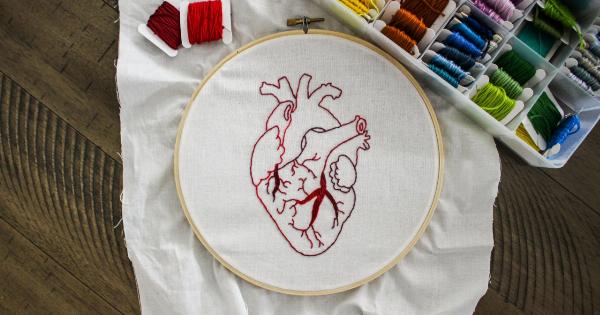Viral infections have been massively impacting people’s health for centuries. Since the emergence of COVID-19, the world has been paying attention to how viruses can cause widespread damage to the respiratory system.
However, viral infections can also have a significant impact on the heart. In this article, we discuss how viral infections can affect the cardiovascular system and their impact on cardiovascular health.
What are Viral Infections?
Viral infections are caused by viruses, which are small infectious agents that can cause diseases in different organisms, including humans, animals, and plants.
Viruses have a unique way of survival and replication as they enter host cells and use their machinery to multiply and spread to other cells. Once infected, the viruses may cause mild to severe symptoms, depending on the type of virus and the person’s immune system’s strength. Common viral infections include the common cold, influenza, hepatitis, chickenpox, Zika, dengue, and HIV.
How do Viral Infections Affect the Cardiovascular System?
Viral infections can affect the cardiovascular system in many ways. They can increase the risk of developing cardiovascular diseases, trigger or exacerbate existing heart conditions, or cause acute cardiac complications.
Some of the viruses that have been linked to cardiovascular diseases include:.
1. Influenza Virus
Influenza virus is one of the most common viruses that affect the respiratory system. However, it can also have a significant impact on the heart.
Studies have shown that people infected with the influenza virus have an increased risk of developing cardiovascular diseases, such as heart attacks and strokes. The virus can also trigger acute myocarditis (inflammation of the heart muscle) and pericarditis (inflammation of the lining of the heart) in some people, which can cause chest pain, arrhythmias, heart failure, and sudden death.
2. Coxsackievirus
Coxsackievirus is a common cause of viral myocarditis, a condition that affects the heart muscle, causing inflammation and damage.
The virus is usually transmitted through fecal-oral route or respiratory secretions, and it can also cause hand, foot, and mouth disease. Coxsackievirus can cause symptoms such as chest pain, fatigue, shortness of breath, and arrhythmias.
3. Human Immunodeficiency Virus (HIV)
HIV attacks the immune system, making the person more susceptible to other infections, including those that can affect the heart.
Studies have shown that people with HIV have an increased risk of developing cardiovascular diseases, such as coronary artery disease, heart attacks, and heart failure. The virus can also cause cardiomyopathy (weakening of the heart muscle) and pericardial effusion (accumulation of fluid around the heart).
4. SARS-CoV-2 (COVID-19)
SARS-CoV-2, the virus that causes COVID-19, has been linked to cardiovascular complications, particularly in severe cases.
Studies have shown that people with COVID-19 have an increased risk of developing blood clots, which can cause heart attacks and strokes. The virus can also cause myocarditis, pericarditis, and arrhythmias. COVID-19 can also worsen pre-existing heart conditions and increase the risk of heart failure and death.
How can Viral Infections Affect Cardiovascular Health?
Viral infections can affect cardiovascular health in different ways, depending on the type of virus and the person’s health status. Some of the ways viral infections can impact cardiovascular health include:.
1. Inflammation
Many viral infections can cause inflammation in different organs, including the heart. Inflammation is the body’s natural response to infections, injuries, or toxins.
However, chronic inflammation can damage tissues and organs, increasing the risk of developing chronic diseases such as cardiovascular diseases.
2. Blood Clots
Some viral infections can increase the risk of developing blood clots, which can cause heart attacks and strokes. Blood clots can form in the blood vessels, obstructing blood flow and causing damage to the heart muscles and other organs.
3. Weakening of the Heart Muscles
Some viruses can weaken the heart muscles, causing a condition known as cardiomyopathy. This condition makes it difficult for the heart to pump blood effectively, leading to heart failure and other complications.
Cardiomyopathy can cause symptoms such as shortness of breath, fatigue, swelling of the legs, and arrhythmias.
4. Arrhythmias
Viral infections can disrupt the normal electrical signals that coordinate the heart’s rhythm, causing arrhythmias.
Arrhythmias can cause the heart to beat too fast, too slow, or irregularly, which can cause reduced blood supply to the brain and other organs, leading to fainting, dizziness, or sudden death.
Conclusion
Viral infections can have a severe impact on cardiovascular health, increasing the risk of developing cardiovascular diseases, exacerbating existing heart conditions, and causing acute cardiac complications.
People with pre-existing heart conditions, such as coronary artery disease, heart failure, and cardiomyopathy, are at higher risk of developing severe cardiac complications if infected with a viral infection. Thus, it is essential to take measures to prevent and control viral infections, such as getting vaccinated, practicing good hygiene, and avoiding close contact with sick people.




























